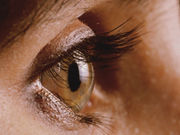Wrestling Wins for Most High School Athletic Skin Infections
Overall rate of skin infections is 2.27 per 100,000 athlete exposures; mostly bacterial and tinea
FDA Approves Anthim for Treating Inhalation Anthrax
Anthim, combined with certain antibacterial drugs, designed to neutralize anthrax toxins
FDA: Most Powdered Medical Gloves Should Be Banned in U.S.
Side effects include airway and wound inflammation, agency says
AANA: Men Should Avoid Erectile Dysfunction Meds Prior to Surgery
Anesthesia professionals need to ask patients about these medications
Risk of Parkinson’s Disease Increased for Rosacea Patients
Research found an association, but no cause-and-effect relationship between the two conditions
Sharps Injuries for 76 Percent of Dermatology Residents
Most respondents received formal sharps safety education; 70% had no hands-on safety training
ACC: PPI Tx Also Beneficial for Those on Low-Dose Aspirin
Gastroprotection with PPI therapy reduced primary GI end point in patients on low-dose aspirin
Gene Panel Test May Help Predict Ovarian Cancer Prognosis
Women with mutations in some 'DNA repair' genes may survive much longer, research shows
Physicians Respond to New CDC Opioid Guidelines
Mainly supportive of guidelines, but concerns include lack of evidence underlying recommendations
Central Corneal Thickness Influenced by Body Position
Decrease in CCT with supine positioning for patients with open-angle glaucoma, healthy subjects














